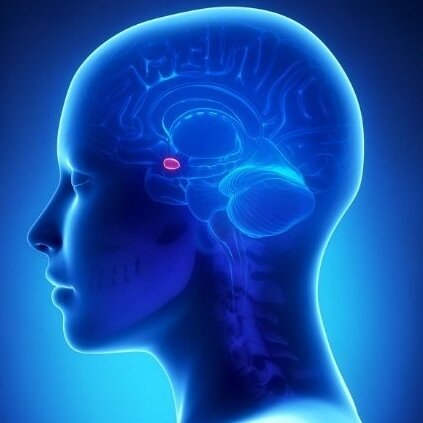Anxiety Facts From a Psychiatrist
Dr. G is in the house today! I can’t pronounce his last name correctly let alone spell it, so that’s what I’ve named him. He’s my main man for medications that help with my anxiety. My personal anxiety journey includes both medication and mindfulness coping mechanisms (more on that later). Ain’t no shame in my game.
Whenever I see him, I tend to ask 45,000 questions (no less) about what is happening in my brain. While he constantly tells me that the brain is way more complicated than modern medicine currently understands, he’s passed along some good resources for anxiety facts. In honor of less is more, I’ve summarize some of my favorite facts for you guys!
Anxiety Facts From a Psychiatrist
What causes an anxiety disorder?
I’m really intrigued on how things work when it comes to anxiety and Western Medicine. Dr. G once told me that “trauma is trauma”. And that “if we were to do a scan of my brain and compare it to another brain that has gone through completely different trauma, the brains would look very similar. The same parts would still be lighting up in response to threat”. Really, anxiety just comes down to brain circuitry and how it’s responding to fear. Here’s some helpful content he’s passed along to explain:
Research leads experts to believe that both genetic and environmental factors play a role, as well as personal history. Environmental factors can include diet and stress, and personal history can include trauma and family history of anxiety.
There are two parts of your brain that are particularly studied when it comes to anxiety - the amygdala and hippocampus. Your amygdala is a small part of your brain that processes threat, and could trigger an anxiety response. Your hippocampus stores memories of threatening events, which could also trigger anxiety.
Evidence suggests there isn’t hardwiring here, but rather a dysfunction in the way the brain circuits respond to threats.
What is happening in your brain when you have a panic attack?
As Dr. G knows, I’m super skeptical and cautious with medication. I’m not obsessed with taking it and honestly, I barely take ibuprofen. So, if I’m going to take medication for my anxiety and panic attacks, I need to know how and why it’s going to work. For me, it was helpful to understand what happens in the brain when anxiety turns into panic. Here is some further content that Dr. G has passed along:
The sympathetic system revs the hell up, and then the parasympathetic system is supposed to step in and calm the system down. If it is unable to do its job, panic can happen. Panic attacks usually start abruptly, peak within 10 minutes, and are done after 30 (longest 30 minutes EVER).
Remember the amygdala? This can become hyperactive. There’s also this thing called periaqueductal gray that provokes the body’s defense response. Whenever these malfunction, it can lead to an over exaggeration of threat and potentially anxiety or panic.
How does medication work against anxiety and panic?
Doctor G. always tells me that medication will do 70-80% of the work against a certain anxiety disorder. And the rest is up to daily coping mechanisms. At some point, I’d like to handle my anxiety again naturally without medication. Knowing that there is a pretty good part of the process that is being done by me. Makes me feel better about the idea of not having to rely on medication one day. In the meantime, I’m always asking him what the medicine does to help. Here’s what he says about it:
“The main neurotransmitter found in the amygdala is called GABA, and it plays a major role in the anxiety response. It reduces neuronal excitability throughout the central nervous system by binding to receptors. Benzodiazepines (like Xanax) enhance GABA, therefore producing a calming effect against anxiety. No one knows exactly how other neurotransmitters such as dopamine, serotonin and norepinephrine are implicated in depression and anxiety. This is all still in the early stages of research.”
I’ve personally found that having an understanding of what is chemically happening in my brain when anxiety and panic sets in is super helpful. And makes me feel more in control when my body doesn’t feel that way. Kind of interesting, am I right?


